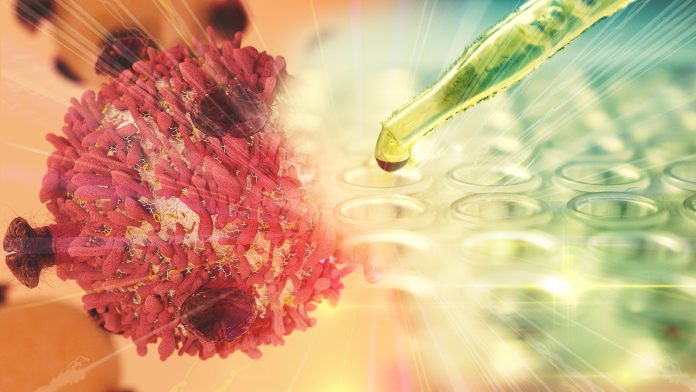Through relentless and innovative research, Cancer Research UK is driving breakthroughs and life-saving treatment, dedicated to understanding, treating, and beating cancer.
Cancer Research aims to understand the complex nature of cancer and develop effective strategies for its prevention, diagnosis, and treatment. It is an incredibly diverse field, encompassing everything from fundamental laboratory research through to clinical trials. In recent years, cancer research and treatment has seen significant advancements, with more personalised treatments, earlier detection, and improved survival rates.
Cancer Research UK, the world’s largest independent funder of cancer research, is a leading player in the field. Supporting research into all aspects – prevention, diagnosis, and treatment – the charity has contributed significantly to the steady increase cancer survival observed over the last 50 years. Dr Tayyaba Jiwani, Research Information Manager, discusses the organisation’s current strategy, its successes and the challenges that must be overcome to succeed in the fight against cancer.
Can you summarise your research strategy, its four objectives and why it’s important to address each of them?
Our new research strategy launched last year renews our commitment to supporting transformational discovery science and research. In the past 50 years, we supported research that has led to a dramatic doubling of cancer survival – two in four people now survive their cancer for ten years or more in the UK. We now seek to accelerate this progress,
with scientific discovery at the heart of all our work, to achieve a world where everybody lives longer, better lives free from the fear of cancer.
Our research strategy stands on the four pillars:
Discover
We are supporting outstanding scientists with bold ideas that rethink and reimagine our approach to cancer.
Prevent
We are funding research to uncover more risk factors for cancer and driving policy and public awareness campaigns on prevention measures. This is in line with our research that four in ten cancer cases in the UK could have been prevented, largely via environmental and lifestyle changes like reducing smoking, alcohol consumption, and obesity.
Detect
Our research has shown that detecting early-stage cancers, when they haven’t significantly grown or spread, allows the best chance for curative treatment. We are spearheading the development of powerful techniques to detect cancer at ever earlier stages while also designing strategies to predict people’s risk of cancer and intercept their disease.
Treat
We continue to drive the development of innovative treatments, building on our past work that has played a role in developing more than 50 cancer drugs in use today. We are leveraging new lines of intervention against cancer, for example, harnessing people’s immune systems to detect and fight cancer cells, and funding efforts to develop kinder and more targeted treatments.

Can you discuss some of your recent breakthroughs?
In the last five years, we have invested over £2bn in discovery research, which has led to game-changing results.
In a significant milestone, recent research we funded has shown that cervical cancer rates have been reduced by almost 90% for women in their 20s who got the vaccine (at age 12-13) against the human papillomavirus (HPV), which causes this cancer. Over decades of hard work, our scientists first proved the link between HPV and cervical cancers, and then played a pivotal role in developing and testing the HPV vaccine, while helping to establish a nationwide cervical cancer screening programme that is now saving lives.
We have also funded work to develop new diagnostic tests to detect oesophageal cancer earlier and to diagnose Barrett’s oesophagus, a condition that makes patients more vulnerable to this cancer. The test – developed by Professor Rebecca Fitzgerald at the University of Cambridge – can identify ten times more people with Barrett’s oesophagus than current GP care and is being introduced to the NHS.
Our innovation and drug development arm, Cancer Research Horizons has brought 11 new drugs to market, which have resulted in over six million courses of treatment to patients worldwide. In total, we have played a role in more than 50 cancer drugs currently in use. Three in every four people who receive cancer drugs in the NHS benefit from our work.
Recently we’ve harnessed our influence to drive important policy changes. Our Smokefree Campaign raised tremendous awareness of the role of tobacco and cigarette smoking as the largest preventable cause of cancer. It culminated in a crucial win earlier this year when the Prime Minister proposed new legislation to create the first-ever smoke-free generation in the UK.
What are the targets and key milestones of testing a new drug?
It can take decades to turn a research discovery made in the laboratory into a new diagnostic or therapeutic intervention that can benefit patients or save lives. Once a new cancer drug compound is sufficiently tested and validated in the lab, it must undergo clinical testing before making it available to patients.
Clinical trials are carried out in three phases – the first and second phases involve a relatively small number of patients. The aims of these trials are to determine the optimum dose of the drug and to ensure that it is successful in treating the cancer of interest. Patients recruited for Phase I and II clinical trials tend to be those in whom existing treatments were not effective or successful. The final, third phase involves many patients and seeks to analyse whether the new drug is better and more effective than the best existing treatment.
Once the drug is successful in all three phases of clinical testing, it must also meet regulatory requirements. In the UK, this involves a two-step process. First, the UK Medicine and Healthcare Products Regulatory Authority (MHRA) assesses the drug’s safety and decides if it is suitable for use in the UK. If so, the drug is approved or licensed and can be legally sold. At this point, the drug can be prescribed and accessed privately, but may not be available through the NHS as new drugs tend to be very expensive.
In the second step, the drug is assessed by the National Institute of Health and Care Excellence (NICE) to approve it for the NHS. They determine if the drug offers significant benefits to patients over and above other existing drugs, and if the additional costs to the NHS are justified.
How will Cancer Grand Challenges progress cancer research? What have been the successes so far?
Cancer Grand Challenges is a global research initiative co-founded in 2020 by Cancer Research UK and the National Cancer Institute (NCI) in the US. It supports a community of interdisciplinary, world-class research teams to come together, think differently, and take on cancer’s toughest challenges with awards of up to £20m. Some of the challenges being tackled include developing new therapies to target the unique features of solid tumours in children; understanding and reversing cachexia, a severe weight loss syndrome that affects many people with advanced cancer; and improving treatment responses by manipulating the composition and status of the microbiota (the community of microorganisms found in the body).
These are challenges that no one scientist, institution or country can solve by themselves. Through the initiative, Cancer Grand Challenges teams are empowered to rise above the traditional boundaries of geography and discipline to ultimately change outcomes for people with cancer. To date, £210m has been invested, funding 11 teams from ten countries worldwide and uniting a community of over 700 researchers and collaborators.
Owing to the scale and complexity of research supported by Cancer Grand Challenges, all projects funded are still underway. A notable highlight has been the development of the first 3D cellular and molecular map of a tumour that can be visualised in virtual reality. This was assembled by the team IMAXT, funded by Cancer Research UK, led by Greg Hannon at the Cancer Research UK Cambridge Institute. It presents a precise and highly detailed map of the tumour, showing every single cell type it contains, where they are located, and which other cells they are interacting with, to sustain and grow the tumour. It allows scientists worldwide to ‘step into the tumour’ using virtual reality and study it in unprecedented detail, to develop new insights and interventions to treat cancer. The project has brought together a vast multi-national team from Canada to Ireland, Switzerland, the US, and the UK to achieve this feat.
What are the main challenges facing cancer research and treatments? What can be done to make treatments kinder?
While we have made great strides in beating cancer, a lot more still needs to be done. In particular, our research strategy has highlighted ‘hard-to-treat’ cancers, including those in the brain, lung, pancreas, liver, and oesophagus. Currently only one in ten people with these cancers survive their disease for ten years or more. We are urgently prioritising research on these cancers to improve outcomes.
Cancers in children and young people also represent an urgent challenge. While survival has improved over the last 50 years, cancer is still the leading cause of death in children aged 1-14. Cancers in children can differ from those in adults in terms of their biology and modes of treatment. In particular, cancer treatment can cause debilitating long-term side effects, ranging from emotional and cognitive impacts, to growth, hormonal, and reproductive effects. Intensive research is required to deeply understand these cancers and develop new and kinder treatments that improve survival while ensuring a high quality of life.
Detecting and intercepting cancer at stages I or II (before it has significantly grown or spread to neighbouring tissues) allows the best chance for curative treatment. However, only around half of all the cancers diagnosed in the UK are detected at early stages. It is crucial for us to expand early detection capabilities through accurate and robust screening programs, diagnostic tests, and imaging tools. We recently supported a pilot lung cancer screening programme (Lung Health Check) led by Professor Caroline Dive in Manchester which was remarkably successful – eight of ten cancers detected by this programme were at early stages. This programme is now being expanded nationwide (with NHS England funding).
In the last decade, several new cancer treatments have revolutionised cancer care, such as immunotherapies that harness our immune system to detect and kill cancer cells and new precision chemotherapies that target specific components of different cancers. However, these therapies don’t work for everyone – some people experience treatment resistance or a return of their cancer after a brief period. We need to understand the factors that contribute to treatment resistance in order to better predict which therapies would work for different patients. This would allow us to match each patient with the most appropriate treatments for their cancer, helping to improve outcomes.
Similarly, we are supporting efforts to make radiotherapies kinder. Radiotherapy works by targeting cancer cells with strong radiation (usually X-rays). While it is a highly effective treatment, it also damages healthy cells surrounding the cancer, causing unpleasant side effects. We are funding research to develop more targeted radiotherapies to minimise their impact on healthy cells. In 2019 we launched RadNet, our largest single investment in radiotherapy research, through which a national network of seven research centres is working to improve radiotherapies.
Following current and recent trials, what can we hope to see in the near future?
An exciting new development is that the drug anastrozole has been found to prevent breast cancer in women at greater risk and is now being offered through the NHS. Anastrozole is a breast cancer drug which works by reducing the production of oestrogen hormone in a woman’s body. High levels of oestrogen are known to cause breast cancer. Almost 300,000 women who have been through menopause and have a family history of breast cancer will be able to start taking anastrozole and reduce their chances of getting the disease.
Please note, this article will also appear in the sixteenth edition of our quarterly publication.









